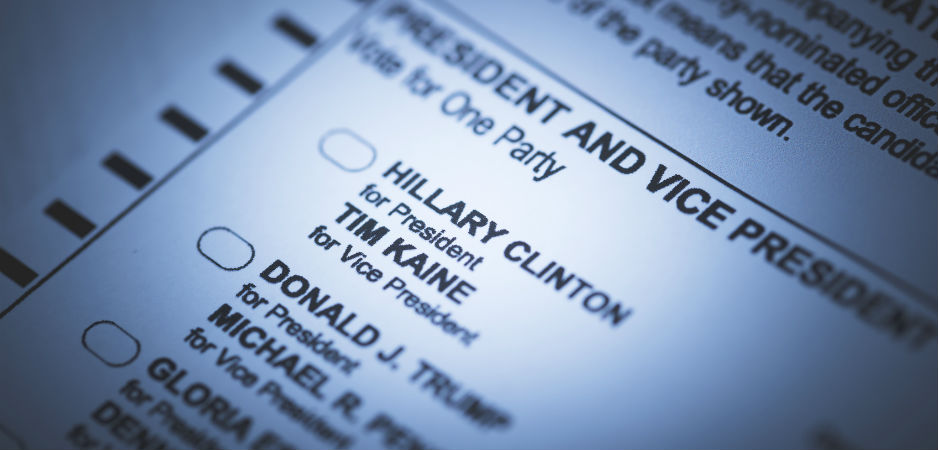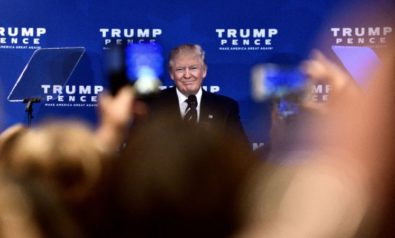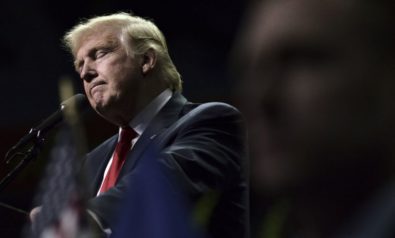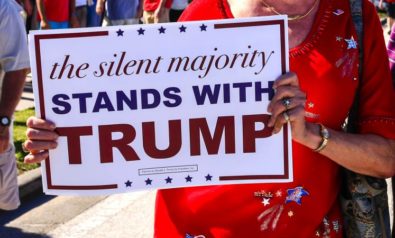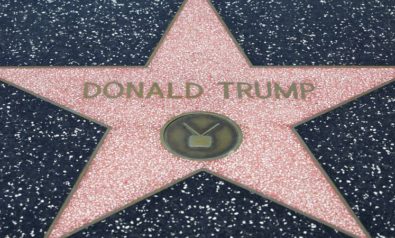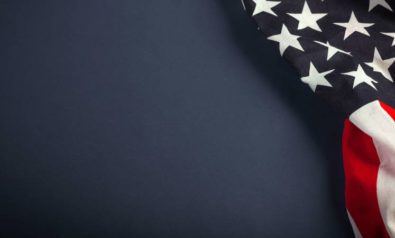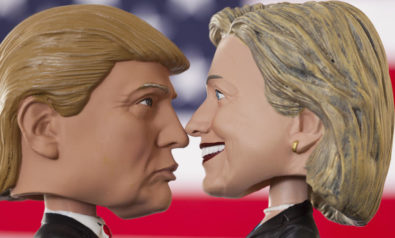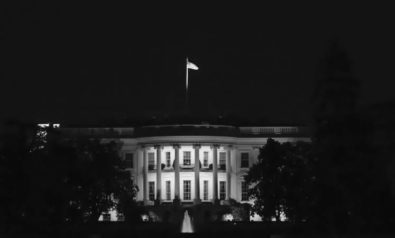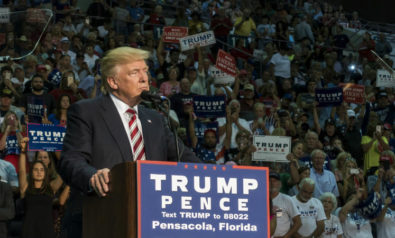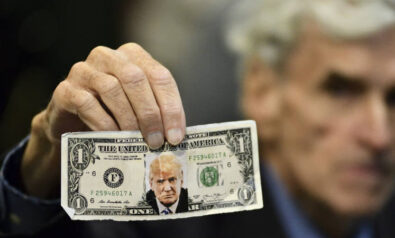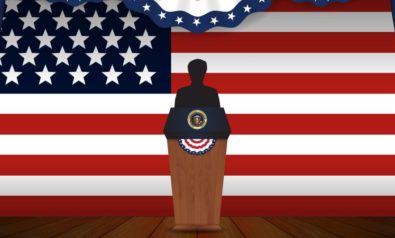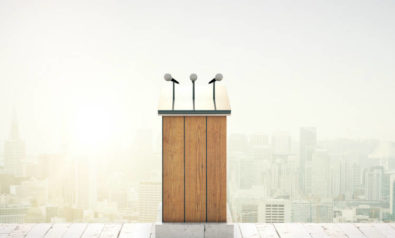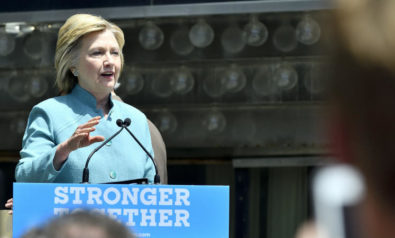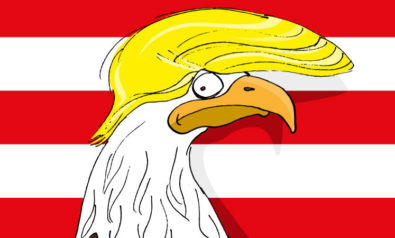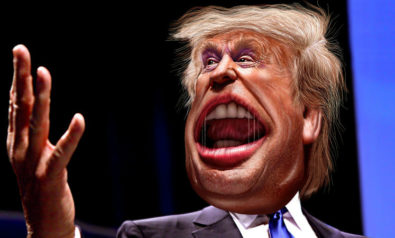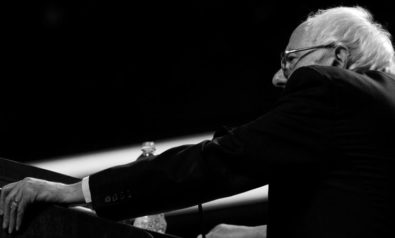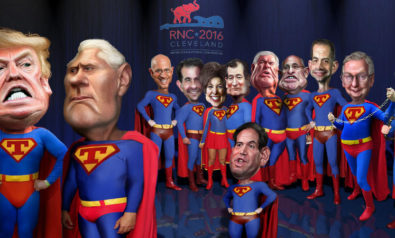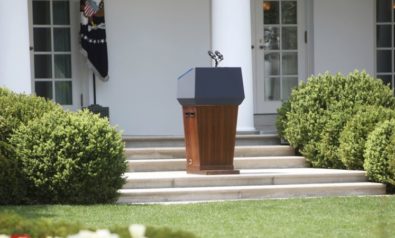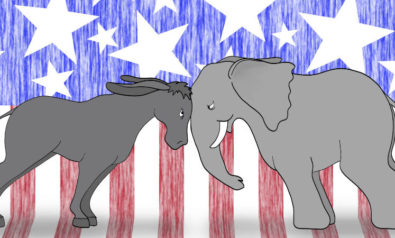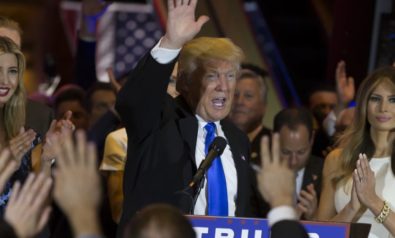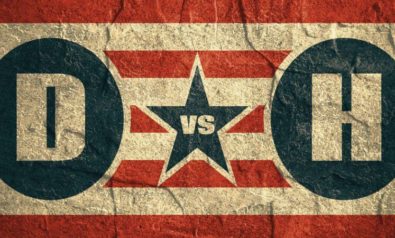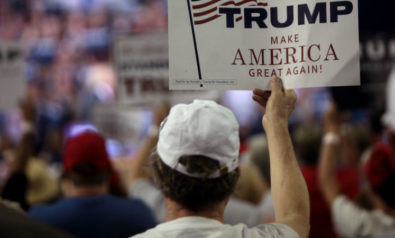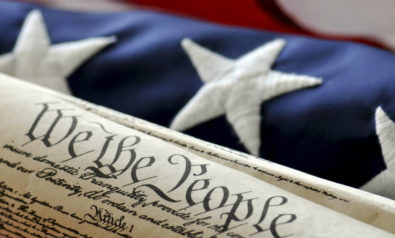With the US presidential election fast approaching, the next chapter of American politics will be an interesting one.
The fact-checking is finished, and the polls to determine who won and who lost will soon be wiped from our collective memory. While it lasted, it wasn’t exactly waterboarding but for many it was an unambiguous case of torture. The three debates are over, praise the Lord. America is now entering the brief phase in which it can look back at the weirdest US presidential campaign in history, and look forward to the denouement when the votes are finally counted during the night of November 8.
The “Presidental” Debate
Most commentators of the debates have tried to analyze not only what came out of the candidates’ mouths, but also the sniffles that emerged from Donald Trump’s nose. Some noticed that throughout the debates Hillary Clinton made very effective use of her teeth, visible through a studied but authentically charming smile, whose brightness was accentuated by her high cheekbones. That smile came across as a demonstration of Clinton’s truly “presidental” temperament.
She harnessed her smile as a powerful defensive and offensive weapon that enabled her, first of all, to parry Trump’s attacks with an expression of amused doubt and even polite ridicule as he sought to embarrass her. More significantly, Clinton used it as a transitional gesture to express the confidence she had in her well-prepared professional boasts and responses to his desultory attacks. Given the lack of seriously argued content on either side in any of the three debates, Clinton’s smile may be what best accounts for the impression expressed by a majority of viewers that she was the consistent “winner.”
We’ve now witnessed a series of thoroughly awful and depressing “presidential debates.” They were neither presidential in style, nor debates in substance. There was nothing to be learned from them, not even about the characters of the candidates. And the commentators, like the media and moderators who organized the debates, were just as bad as the candidates. Confusing political dialogue with a sporting event, they focused on one thing: their precious fact checks—keeping a scorecard of lies, or contradictions of known or assumed facts. As if government was only about sticking to the facts! And as if facts were just objects in the environment that one could bend down, pick up and show to the camera.
There were lies galore in the final debate, especially on Trump’s side, to the delight of news analysts. But the two most depressing, even chilling lies went unnoticed by all commentators. They belong to Clinton. Here they are: “On the day I was … monitoring the raid that brought Osama bin Laden to justice, [Trump] was hosting the Celebrity Apprentice.” And, “America is great because it’s good.”
What’s chilling about the first is the new equivalence between “bringing to justice” and assassination. It is a Wild West vigilante mentality, which obviously has its place in US culture, but doesn’t fit with the idea of being presidential or even constitutional. It does fit with the notion of drone wars, which should give us all pause. And it was spoken by the same person who, when describing the outcome of the Libya campaign, blurted out “we came, we saw, he died” followed by a loud chortle.
The second affirmation is the basis of American exceptionalism. It is eerily consistent with George W. Bush’s Manichean view dividing the world unto “us” (the good) and “them” (the evil). Many people think or at least hope that one’s political leaders are doing as much good as they can. But does anyone seriously believe there is such a thing as a nation that’s good in its essence?
Americans are routinely taught to suppose that, and never to reason about it in a Socratic fashion by asking themselves what “good” is. Everyone has an idea that there are places where it’s good to live, good to do business, good to go to school, good to practice the arts, etc. But the idea of good as an absolute quality applied to a nation takes us back to the Puritan origins of the United States of America and the mentality that authorized European settlers to eradicate the native peoples because the civilization they represented was “good”—blessed by God—and that the native populations were an obstacle to creating a nation intent on being a moral beacon for the world.
An Inevitable Clinton Victory
Since the first debate, the news media have listed and analyzed pages of lies and distorted facts produced by the two candidates. But they never mention their most sinister contradictions of moral and historical truth, except to praise them as positive sounding utterances within a sea of negativity.
As not only the nation but the entire world prepares for a now inevitable Clinton victory in November, these issues matter as they never mattered before. This election cycle has taught us a lot about American democracy, the two-party system and the marketing of political candidates. Whatever one thinks of Bernie Sanders (hero or traitor) or even of WikiLeaks (window into the actual practices of politicians or criminal enterprise), we now know things that were formerly hidden from view.
 Fair Observer provides you deep and diverse insights for free. Remember that we still have to pay for servers, website maintenance and much more. So, donate now to keep us free, fair and independent.
Fair Observer provides you deep and diverse insights for free. Remember that we still have to pay for servers, website maintenance and much more. So, donate now to keep us free, fair and independent.
In this campaign, the face of American democracy has changed. The Republican Party has imploded in the most embarrassing fashion. Trump’s takeover of the Grand Old Party (GOP) could end up seriously and permanently modifying the now traditional duopoly of the two parties.
But the Democratic Party has also seen undergone a crisis that bodes ill for its own future. A generational rift has emerged in which the millennials have distanced themselves from what was traditionally the party of youthful renewal. Depending on how the newly formed Clinton administration responds to the identification of youth with the anti-oligarchic “revolution” promised by Sanders, the party and the incoming US administration may have difficulty maintaining its position as a potentially dominant political force, whether or not Clinton’s election improves the party’s position in the Senate and Congress.
A late October surprise now seems less and less likely, if only because of Trump’s propensity for self-sabotage. But Clinton’s negative image among voters still has Democrats worried.
Over the past six months the Clinton campaign has based everything on painting Trump as an unhinged, loose cannon with a few loose wires in his brain. Trump has obliged them by regularly providing evidence to support that thesis.
The most recent version of the Democrats’ scare tactics goes beyond the election itself. It posits that after losing, Trump will attempt to lead a populist movement mobilizing the fascist and racist instincts he has appealed to. Almost on cue, by holding back from promising that he will accept the results, Trump has comforted that very idea, validating the Democrats’ electoral propaganda.
What Clinton and Trump Symbolize
But there’s another dimension to this election, which has little to do with the actual personalities of the candidates. Each is a symbol of something else. Clinton is the incarnation of the system in all its aggressive collective glory: American exceptionalism, military might, Wall Street, the myth of free enterprise where everyone can be a creative entrepreneur, free trade. In contrast, Trump has assumed the symbolic role of the angry adolescent, the rebellious individual, the rock star challenging the system and all its constraining power.
American culture abhors constraint of any kind, as surely as nature abhors a vacuum. Hillary represents success in the sense of “adult” conformity built on unquestioned authority. Trump is the mythical “rebel without a cause,” ready to create havoc by changing the rules of the game, because so many people feel—without necessarily understanding why—that the system is alien and oppressive. This comes in spite of the fact that the system has always been kind to Trump himself.
The Clinton campaign claims that Trump is a threat to democracy. This is a clever endgame strategy because it carries the assumption that the existing political system is a true, honest-to-God democracy. If democracy didn’t exist, it couldn’t be threatened. But we know that the US political system—the one for which Clinton is the symbolic figurehead—is no longer a democracy (if it ever was), but a carefully structured oligarchy. If voters recognized this, they might begin to think that Clinton may not be right: that America isn’t necessarily “good.” But this is the one thing that Trump can’t teach them, and can’t put forward, because he himself belongs to the oligarchic class.
The real paradox of this election cycle is that Sanders, for the first time since possibly Franklin Roosevelt, created the impression that there might be a choice outside of the oligarchy. That hope was dashed in the primaries, with a little help from the Democratic National Committee, not averse to loading the dice when necessary.
But the rise of Trump and the well-executed elimination of Sanders meant that instead of there being the usual anodyne choice between two slightly contrasting types of reasonable establishment oligarchs (Democrats vs Republicans), this time it came down to the choice between two very different representatives of the same oligarchy: one predictable (responsible) and the other unpredictable (rebellious). This made the predictable one (Clinton) seem wiser than she actually is and the unpredictable one more subversive than he is, elevating Trump to the status of the daring challenger of the status quo.
Flawed But Democratic
The presidential electoral system is visibly flawed as this author has pointed out elsewhere. In spite of its imperfection, it was designed for democracy, and so long as people believe in the reality or at least the possible reality of democracy, it can survive and even thrive. But belief must be based on something solid, an understanding of how political decisions are made. One of the explanations for Trump’s unexpected rise is the utter failure of civic education in the US, which has resulted in a lot of people sharing a general feeling of resignation in the face of oligarchic control.
Although the Democrats want us to believe otherwise, it isn’t democracy that’s threatened. It’s the symbolic system of civic virtue that has been undermined by both parties—the Democratic Party by assuming and tightening its control, reaffirming its commitment to oligarchy, and the Republican Party by utterly and perhaps irretrievably losing control of the population that has followed the GOP’s emotional programming.
Hillary Clinton will win the election. Donald Trump will protest. But in spite of the fear tactics promoted by Democrats, Trump is unlikely to lead a movement based on the regressive themes of his campaign. He simply isn’t a leader and never has been. His voters will be bitter and disappointed, and it will be up to the Republican Party to seek a way of channeling their frustration. But having invested too much in their AR-15s, its militants will not adopt the idea of taking to the streets with their pitchforks.
The next chapter of American politics will be an interesting one, in which the pressure will be on everyone to redefine who they are within a newly delineated political spectrum as well as what they stand for—the losers as well as the winners.
For Hillary Clinton and her smile, it could very well resemble a four-year teething period.
The views expressed in this article are the author’s own and do not necessarily reflect Fair Observer’s editorial policy.
Photo Credit: LPETTET
Support Fair Observer
We rely on your support for our independence, diversity and quality.
For more than 10 years, Fair Observer has been free, fair and independent. No billionaire owns us, no advertisers control us. We are a reader-supported nonprofit. Unlike many other publications, we keep our content free for readers regardless of where they live or whether they can afford to pay. We have no paywalls and no ads.
In the post-truth era of fake news, echo chambers and filter bubbles, we publish a plurality of perspectives from around the world. Anyone can publish with us, but everyone goes through a rigorous editorial process. So, you get fact-checked, well-reasoned content instead of noise.
We publish 2,500+ voices from 90+ countries. We also conduct education and training programs
on subjects ranging from digital media and journalism to writing and critical thinking. This
doesn’t come cheap. Servers, editors, trainers and web developers cost
money.
Please consider supporting us on a regular basis as a recurring donor or a
sustaining member.
Will you support FO’s journalism?
We rely on your support for our independence, diversity and quality.


